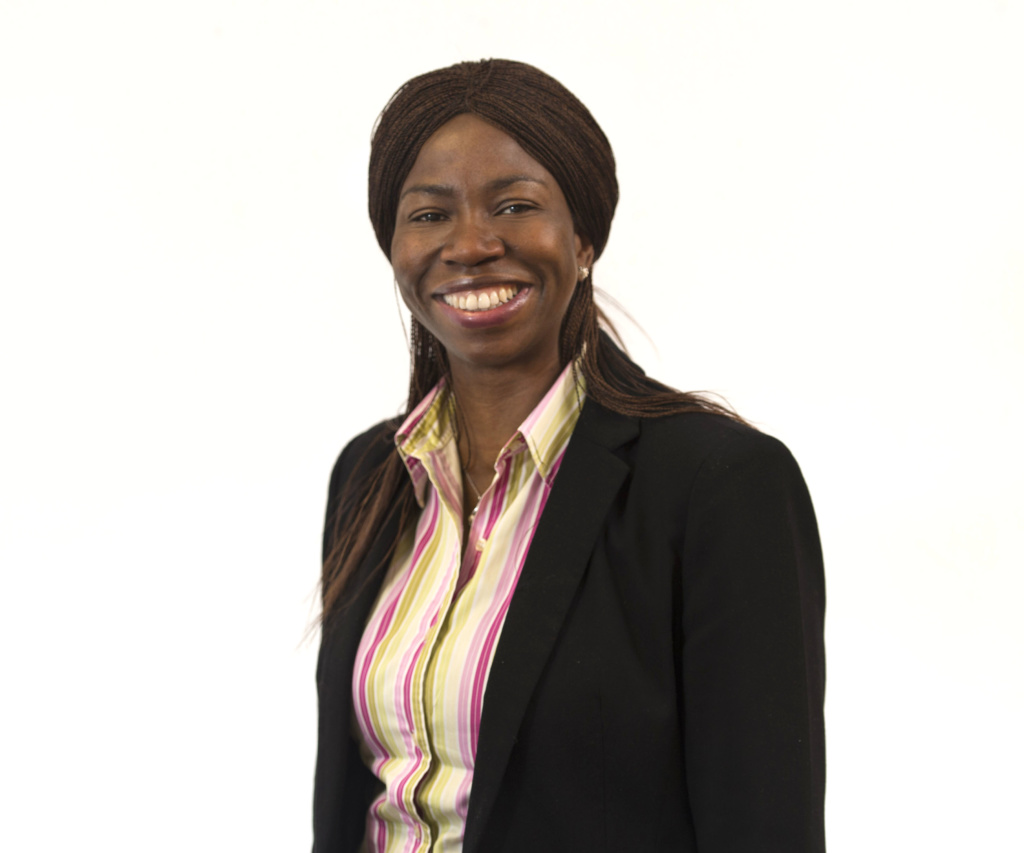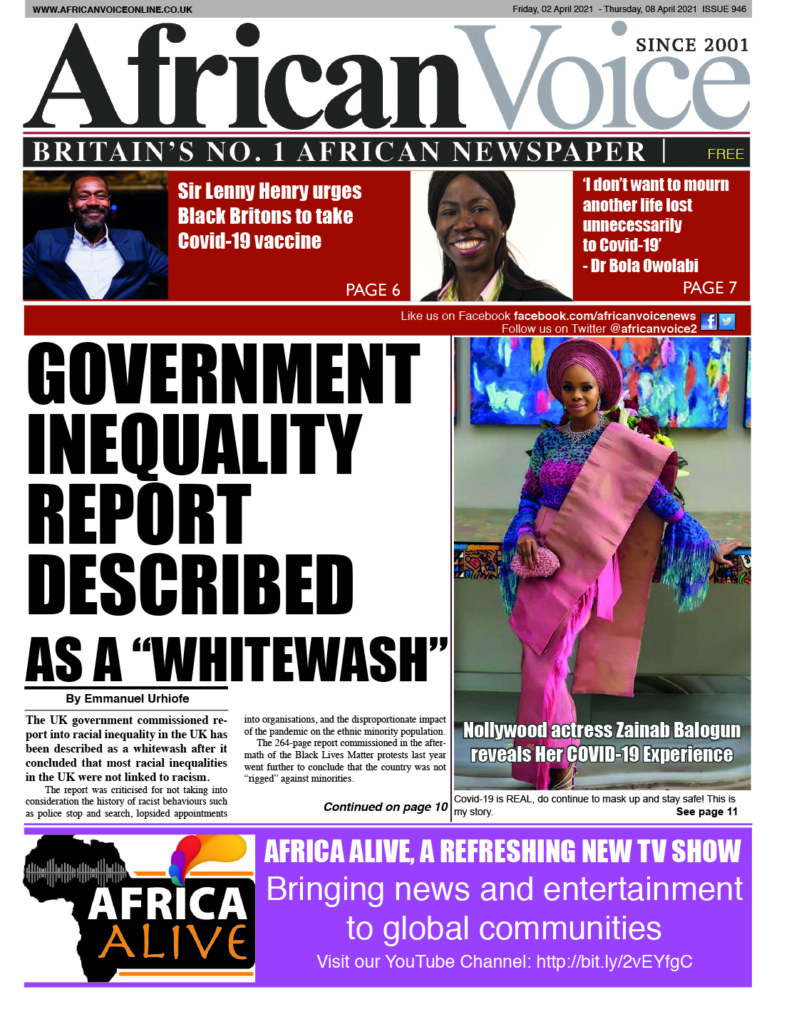
Dr Bola Owolabi is Director, Health Inequalities, at NHS England and NHS Improvement. She works as a GP in the Midlands. Here she writes about her personal mission to address health disparities and improve Covid-19 vaccine uptake.

This week, the UK marked a significant milestone in its vaccine rollout programme – 30 million adults have now received their first dose of the Covid-19 vaccine, over half of UK adults. Sadly, this joyous moment doesn’t ring true across all communities. Official ONS figures also released this week, showed that Black Africans lag behind on uptake of the vaccine – just 58.8% of Black African over 70 have had their vaccine, compared to 91% of their white counterparts. In the same week, we saw a host of famous Black faces make a public plea to our community to seek the facts about the vaccine, and have the jab when offered.
In a time like no other, the spotlight is firmly on our community, and it can be unnerving. But these are desperate times. Mortality rates from Covid are highest among Black men and women. In England Black African men are almost four times as likely to die from Covid than white men, while Black African women are almost three times more likely to die from the virus than their white counterparts. Because of shocking statistics like these, over the last three months, like many healthcare professionals, I have spent many evenings and weekends on Zoom meetings hosted by community and faith groups discussing and answering questions from the public on the Covid-19 vaccine. Last Saturday I joined an event with the Nigerian High Commissioner and African Voice newspaper on this precise issue. My tenacity and dedication to participate in these events remains just as unrelenting as when I began this journey.
This work with the community is saving lives. I’ve seen first hand through polling of attendees before and after Covid vaccine Q&A events that when people get transparent and factual answers to their questions about the jab, they change their minds and decide to get vaccinated. And whilst there is still more work to be done to increase uptake of the vaccine amongst the Black community, we have made significant progress, when you consider the bleak headlines we read in January that suggested that 72% of Black people were unlikely to have the Covid vaccine.
One of the most common questions I get asked is around the safety and perceived speed at which the vaccines were developed. While I knew they would have gone through rigorous safety checks by the Medicines and Healthcare products Regulatory Agency, which approves all the medicines we use in the UK, I myself initially wanted reassurance around this issue of speed. Learning that some stages of development were run in sequence but no safety checks were skipped gave me extra confidence in the vaccine. While there are around 100 Covid vaccines in development – a result of scientists around the world working to find a solution – only three so far have been made available. This is because safety and effectiveness remain paramount.
As a British Nigerian, I feel a great deal of responsibility to protect my community. For me, it’s personal. Growing up in Nigeria, I saw my mother die aged just 48 from diabetes – an eminently treatable condition because we lacked access to high quality healthcare.
I know how poor access to quality, free and timely medical assistance can prove fatal. That’s one of the reasons I’m so committed to doing everything I can to help our community feel comfortable about the vaccine and take it when it’s offered to them.
We know the reasons for lower uptake of the vaccine by the Black community are complex and multifaceted. Many of us feel we haven’t been heard, and why trust institutions who you don’t believe have our interest?
As well as the disproportionate impact of Covid on the Black community, it is vital that we also know that in the fight against Covid, there are Black people advocating for us throughout the process. There are Black people spearheading the development of the vaccines, two names spring to mind in Dr Onyema Ogbu and Dr Kizzmekia Corbett. There are Black people across the world that have put themselves forward to be part of the vaccine trials, in numbers unlike most clinical studies. And there are Black healthcare professionals working tirelessly in caring for Covid patients, sadly, too many of whom we have lost to this deadly virus.
My work tackling health inequalities spans far beyond addressing the disproportionate impact Covid-19 has had on our community. But right now a lot is at stake. Families have been devastated by losing loved ones to this virus. Don’t be mistaken by thinking only the elderly or those with underlying health conditions need to get the vaccine. Even younger people who have survived milder cases have seen their quality of life severely reduced by the impacts of long Covid, which makes everyday tasks such as climbing the stairs practically impossible. With no way of knowing how your body will react to Covid and 1 in 3 people showing no symptoms, we can’t take the risk that we won’t pass this killer virus on to those around us.
I don’t want to mourn another life lost unnecessarily to Covid-19 when a safe and effective vaccine is accessible. Let’s continue to make a real difference by coming forward to get the vaccine when we’re invited to. Speak to trusted healthcare professionals if you have questions. Be wary of misinformation online.
If you’re over 50, you can book your Covid vaccination appointment via the national booking service at www.nhs.uk/covid-vaccination or call 119 free of charge between 7am and 11am, seven days a week. You don’t need an NHS number to get the vaccine and you can get it even if you’ve declined it in the past.
Kindly follow us on twitter:@AfricanVoice2










